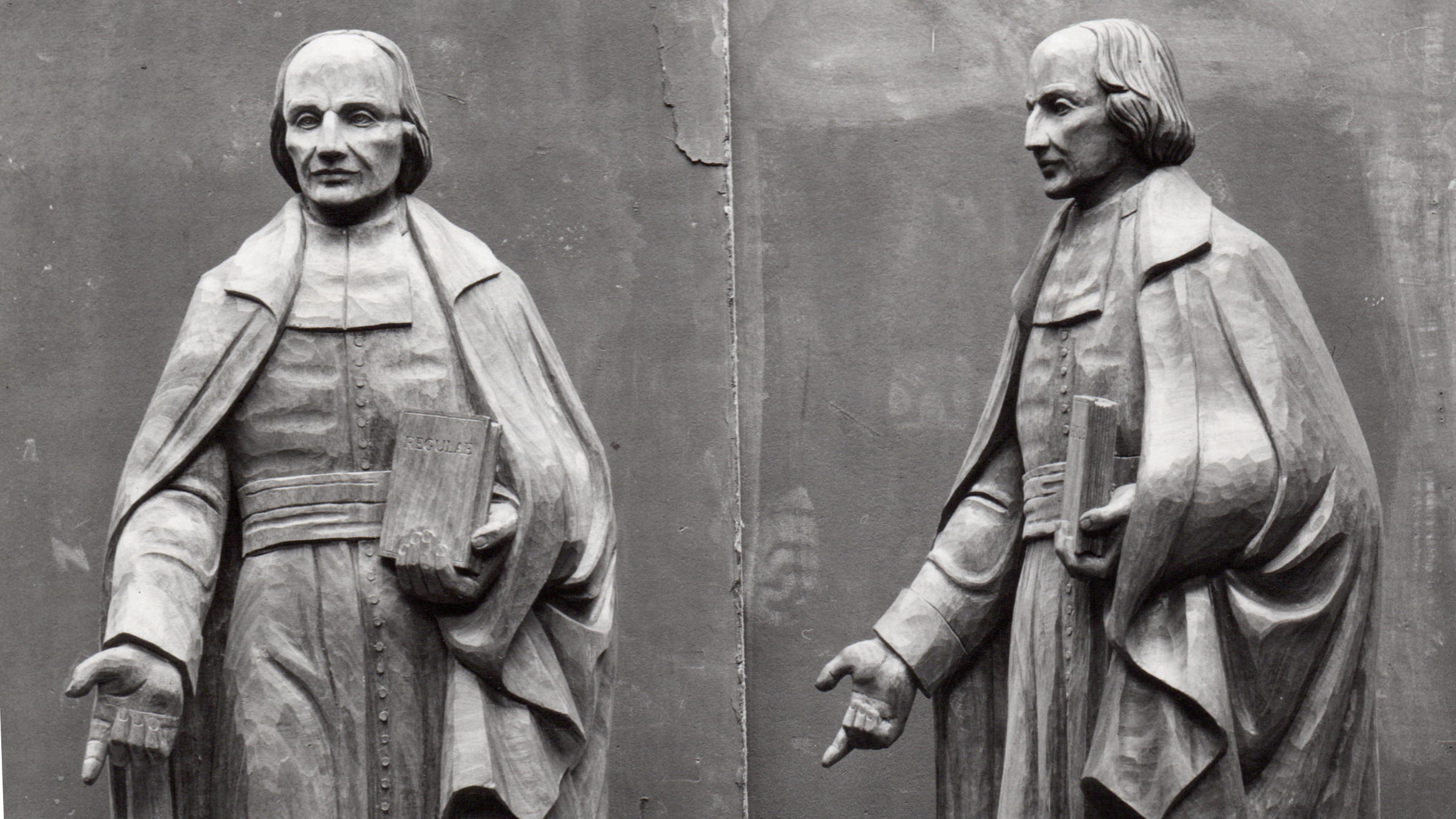Today we remember one of the greatest pastors in the history of the Church, St. John Vianney, the patron saint of parish priests. The Curé d’Ars had one all-consuming desire: to help his parishioners become holy. Although many pastors, then and now, would undoubtedly share that mission, St. John was utterly committed to it, willing to do whatever was necessary to attain it. He spent several all-night vigils in his chapel, praying:
My God, grant me the conversion of my parish; I am willing to suffer all my life whatsoever it may please thee to lay upon me; yes, even for a hundred years I am prepared to endure the sharpest pains, only let my people be converted.
This may sound crazy to the outside world. Someone inviting suffering on himself? Most of us do everything we can to avoid pain, suffering, or even a little discomfort. But as Catholics, we know that our suffering is not pointless, that it can be redemptive, offered up to God as a sacrifice for the sake of others. Even if suffering is not inherently good, it can produce good if we endure it, allow it to purify us, and make it into a sacrifice.
St. John Vianney had plenty of opportunities to “offer up” his suffering. When he arrived at his parish in 1818, there were only sixty households and about two hundred people. Few of the people were literate, and most were indifferent about faith. Almost nobody cared what this new priest had to say. Even though he would spend up to seven hours writing his homilies, and spend all day Saturday practicing and memorizing them for the Sunday Mass, he faced what we might delicately call a “difficult” crowd of listeners. They entered late and left early, banging the loud door each time. They whispered to each other throughout his homily and yawned noisily. Some parishioners liked to mock the priest’s voice and mannerisms.
But that still didn’t shake his commitment: “When I preach I speak to people who are either deaf or asleep, but when I pray, I speak to the God who is not deaf.”
Even with this heroic degree of sacrifice, it took a long while to see any change. Besides their deplorable behavior at Mass, John’s parishioners accused him of debauchery, wrote songs to taunt him, and threw mud and hung crude posters on his rectory door. They sent hateful letters to his bishop about him. One woman even falsely accused him of fathering her child. His only response to all this vehemence? “We must pray for them.”
Jesus says, “Whoever wishes to come after me must deny himself, take up his cross, and follow me” (Mt 16:24). Many of us struggle with seemingly unbearble relationship problems. Maybe it’s a suffering friend or a relative facing severe health trials. Perhaps it’s a difficult child, maybe one who has left the Faith. Whatever the case, we can offer up our own suffering on their behalf, just as St. John did.
Jesus says we must not flee the crosses in our lives. Just as he accepted beatings, torture, and ultimately death on our behalf, offering his sacrifices for the sake of the world, so we must channel our much smaller pains and sufferings for the sake of those who could use some extra grace.
What does this look like in practice? Each time you face a difficult situation at home or work, pray, “Lord, I offer this to you for the sake of [insert name].” Each time you suffer a small cut, or perhaps a sore throat, bear it willingly and say, “Lord, I offer this sacrifice to you for [insert name].”
To be clear, this isn’t an attempt to manipulate God. We can’t force God’s hand by demanding he offer grace to our children in return for our good works. Grace is, by definition, an unmerited gift. But in God’s spiritual economy, he always meets sacrifice with grace—it’s the inevitable result.
When we make small sacrifices on behalf of others, we experience what St. John found two hundred years ago: needed grace surging into the world.
Excerpted from Brandon Vogt’s book, RETURN: How to Draw Your Child Back to the Church.
Image Credit: Statue of St. John Vianney, Dinan, France; photo by Bernard Dick
